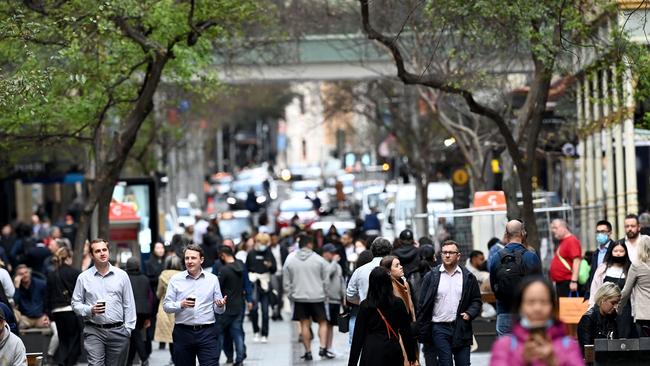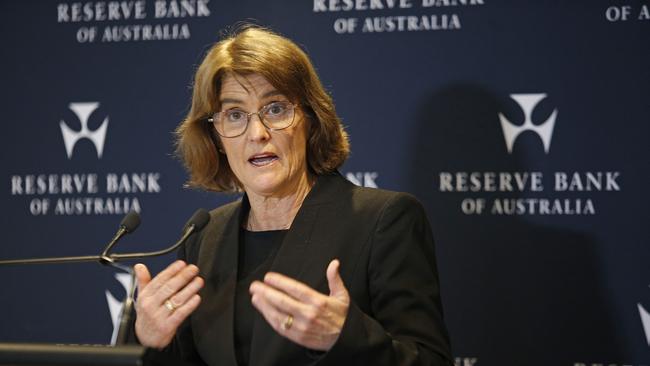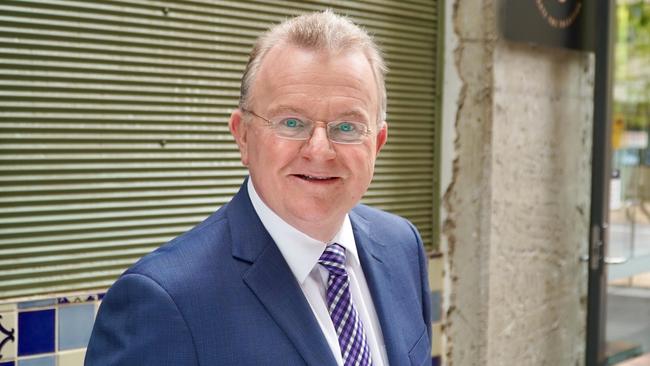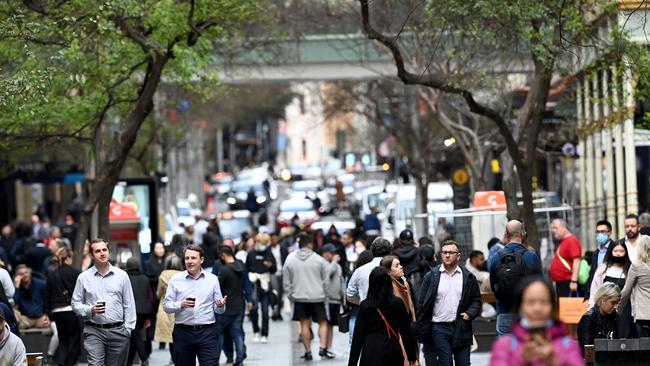
“Wages are rising at a much faster rate than the RBA’s inflation targets, so the only way interest rates can be reduced is an improvement in our appalling productivity.”
Bullock does not use those words, but that’s the message behind her “RBA speak”. And alarmingly, the reality is that a major Australian social change – fostered by the Albanese government – makes it almost impossible for the nation to improve productivity.

Indeed, there is a likelihood it will fall further, putting lower interest rate expectations at risk and fanning speculation of even higher rates.
Most Australian commentators, community analysts and governments have missed what arguably is the biggest social change in our society – the relentless decline in highly productive family business, which is being replaced by government-supported activities and to a lesser extent larger corporations.
As a result, we are turning ourselves into a low-productivity society where government and big corporate power can set prices and are often insulated from the activities of the RBA.
In previous generations, family business kept a lid on prices when the RBA squeezed the economy. Australia’s family business decline is a hidden force behind the failure of the RBA’s higher interest rates to have the expected impact on the consumer price index.
The extent of the decline has been documented for the first time by Small Business and Family Enterprise Ombudsman Bruce Billson.

Back in 2006, small family businesses contributed 40 per cent of GDP and employed 53 per cent of those with a private sector job. Today, smaller family business accounts for only 33 per cent of our nation’s GDP and provides only 42 per cent of the private sector workforce with a job.
And only 8 per cent of small business owners are under the age of 30 – half what it was in the 1970s.
And the fall is set to accelerate because new figures from the tax office reveal that a staggering 46 per cent of small family businesses did not make a profit in the most recent year of available accounts.
Some three-quarters of self-employed business owners, for whom their business is their full-time livelihood, are earning less than the average weekly full-time wage.
In years gone by, small enterprises represented a big chunk of the Australian middle class. Now they’re moving into lower income areas, and the middle class is dominated by government employees and large enterprise executives.
The squeeze on family business and Australian productivity goes much further than simple rises in interest rates.
Mindless government regulators appear to regard small enterprises and productivity as “the enemy”. Armies of bureaucrats set families mountains of regulatory tasks that they often perform late at night.
Paying employees correctly with complex awards and employment rights is a nightmare.
And on top of that comes the incredible 700 pages of industrial relations legislation, which is designed to reduce productivity over many years.
One of the first deliberate blows to productivity will be the legislative provision that wipes out efficient, safe and productive independent family-backed truckies. They will be replaced by a union/big corporate legal cartel with myriads of anti-productive rules. The general industry view is that this anti-productivity strategy will lift transport costs across the nation by about 10 per cent dash – exactly what the RBA does not want to happen.
The anti-productive measures that have been inserted into the family business community rules go even further than the 700 pages of the industrial relations act.
Around the world, large corporations face environmental and other compliance obligations. They meet them using large teams of people. But family enterprises dealing with large corporates are now being forced to provide the same sort of information, and they don’t have teams of people to assemble that data.
Normally, when small family businesses are struggling, unemployment rises and that squeezes prices and inflation.
But as Saul Eslake pointed out in the Weekend Australian, since the RBA began raising interest rates, state and federal government’s fixed capital and consumption spending on goods and services has increased by a staggering 11.9 per cent from June 2022 to March this year.
Private consumption rose only 3 per cent over the same period.

Given the avalanche of government money, unsurprisingly the number of jobs in Australia has increased by 2.4 per cent over the past year, a strong number at this point in the economic cycle.
But government-aligned industries – healthcare, social assistance, education, training and public administration – account for around 83 per cent of that increase. These areas of our community are not known for their high productivity, which means that the incredible avalanche of capital is being directed to areas that will not boost productivity.
The nation must therefore rely on the private sector to invest in new plant and production. This is happening but at nowhere near the required pace, mainly because of the chaos in Australian energy policy.
If interest rates do not go down (or rise) then it will be important for the RBA governor to strip away “RBA speak” and tell the community the full truth as to who is responsible for the low productivity and consequent interest rate trends.
Meanwhile, nationally we face a fundamental change in our community as the backbone of our middle class switches from family business to government-linked and corporate executives who are far more remote from the rest of the community than family business people.
But we should not forget that family business is still a vital pillar of the community.
Almost 98 per cent of businesses in Australia are small businesses – some 2.5 million of which generate nearly $600bn of economic activity, accounting for one-third of our GDP. They provide jobs for 5.36 million people.






In simple English, Reserve Bank governor Michele Bullock has delivered a clear message to both the community and Australian governments.